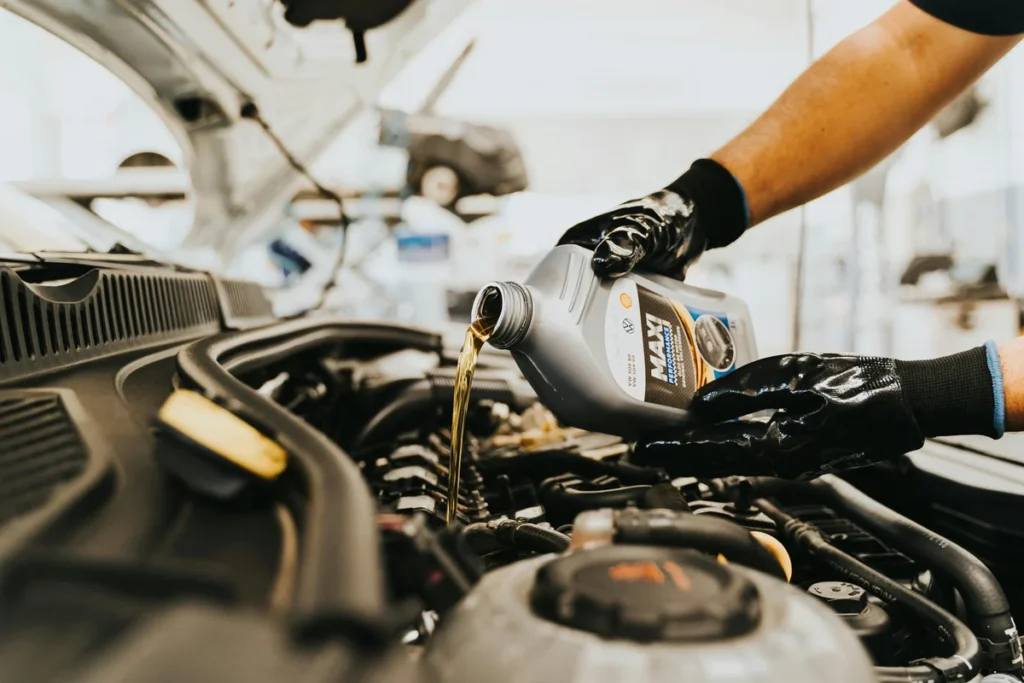Do Electric Cars Need Oil Changes? The Complete Guide

If you own a gas-powered car, you’re probably familiar with the regular hassle of oil changes. But what about electric vehicles (EVs)? Do they need oil changes too? The short answer is no, electric cars do not require oil changes—but that doesn’t mean they’re completely maintenance-free…
In this guide, we’ll explore how EVs work, why they don’t need oil changes, and what types of maintenance they do require.
Understanding How Electric Cars Work
Unlike traditional vehicles, which rely on an internal combustion engine (ICE) to burn fuel, EVs operate using electric motors powered by a battery. This fundamental difference eliminates the need for engine oil, as there are no pistons, valves, or moving metal parts that require lubrication.
Why Do Traditional Cars Need Oil Changes?
Gasoline and diesel cars rely on engine oil to lubricate moving parts, reduce friction, and prevent overheating. Over time, oil breaks down and becomes contaminated, which can lead to engine wear or even failure.
Regular oil changes keep the engine running smoothly, but since EVs don’t have an engine, they don’t need engine oil—problem solved!
Do Electric Cars Have Engines?
Nope! Instead of an engine, EVs use an electric motor that doesn’t require oil. These motors are designed to run efficiently without the need for liquid lubrication, making oil changes a thing of the past for EV owners.
Fluids That Electric Cars Still Require
While electric cars don’t need oil, they still rely on some essential fluids for performance and longevity.
Battery Coolant
EV batteries generate heat, so most electric cars use a liquid cooling system to regulate temperature. Over time, coolant levels may need to be topped up or replaced, usually every 50,000 to 100,000 miles, depending on the vehicle.
Brake Fluid
Electric cars use regenerative braking, which reduces wear on traditional brake pads, but they still require brake fluid to operate the hydraulic braking system. Brake fluid should be checked and replaced every 2 to 3 years.
Transmission Fluid (For Some EVs)
Some EVs, like Teslas, have single-speed gearboxes that use transmission fluid. While it doesn’t need to be changed as often as in gas cars, it may require maintenance every 100,000 miles or more.
Windshield Washer Fluid
The simplest fluid to maintain—just top it up when it runs low!
How EV Maintenance Differs from Gas-Powered Cars
EVs have fewer moving parts, which means fewer things can go wrong. Here’s how maintenance differs:
- No oil changes
- No spark plugs or timing belts
- No exhaust system maintenance
- Fewer brake pad replacements due to regenerative braking
The Benefits of Not Needing Oil Changes
Owning an EV means saying goodbye to messy, costly, and time-consuming oil changes. This comes with several benefits:
- Lower maintenance costs – No more paying for oil, filters, or labor.
- Better for the environment – No waste oil to dispose of.
- More convenience – Less time spent at the mechanic.
Common EV Maintenance Needs
While oil changes aren’t necessary, here are some things you should still keep an eye on:
- Battery health – Avoid deep discharges and extreme temperatures.
- Tire rotations – EVs are heavier, so rotating tires helps prevent uneven wear.
- Software updates – Some EVs receive over-the-air updates that improve performance.
Myths About Electric Car Maintenance
There’s a common belief that EVs require zero maintenance, but this isn’t true. While they require less maintenance than gas cars, they still need regular checkups.
Another myth is that batteries need frequent replacement, but most modern EVs come with warranties covering 8–10 years.
How to Extend the Life of Your Electric Car
Want your EV to last longer? Follow these simple tips:
- Charge smartly—avoid letting the battery drop to 0%.
- Keep your tires properly inflated.
- Get regular inspections to catch issues early.
Future of EV Maintenance
Advancements in EV technology continue to reduce maintenance needs. In the future, solid-state batteries and self-repairing materials could make EVs even more hassle-free.
Conclusion
Electric cars do not need oil changes, making them a low-maintenance alternative to traditional vehicles. However, they still require some routine servicing, including battery coolant and brake fluid checks. As EV technology advances, maintenance will become even easier—paving the way for a hassle-free driving experience.
FAQs
-
Do electric cars have any oil at all?
Some EVs use a small amount of lubricant in gearboxes, but not traditional engine oil. -
How often do electric cars need maintenance?
Most EVs require checkups every 10,000 to 20,000 miles, depending on the manufacturer. -
Can I service an electric car myself?
Some tasks like tire rotations and washer fluid refills can be done at home, but battery and software maintenance should be handled by professionals. -
Do hybrid cars need oil changes?
Yes, hybrids still have internal combustion engines, so they require regular oil changes. -
Are EVs cheaper to maintain than gas cars?
Absolutely! With fewer parts and no oil changes, EVs typically have lower maintenance costs over time.
